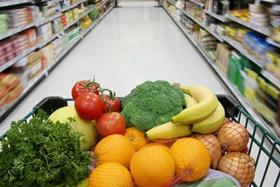
Millennials now account for almost one-third (31 per cent) of the dollars spent in the Australian economy [1]. This generation has quickly become the new powerhouse driving both the Australian economy and grocery sector. These consumers are more demanding and more likely to purchase products with organic cues, sustainability claims, and environmentally-friendly packaging [2].
When it comes to fresh produce, Nielsen research has uncovered four key trends driving growth: transparency, convenience, health and snacking [3].
Transparency is something I have chosen to focus on in this column, as it is an increasingly important purchase driver, especially among younger generations. Specifically, consumers want transparency around sustainability, processing claims (e.g. organic) and ingredients. Interest in each of these areas varies among consumers, however, the overall trend shows that shoppers are increasingly aligning their purchasing behaviour with their personal beliefs.
In a market like Australia, where the concept of sustainability is already somewhat established, consumers are increasingly more aware of their impact on the environment and are demanding stronger, more aggressive action from their favourite products, retailers and the government. A recent Nielsen global study on sustainability revealed 81 per cent of global consumers felt strongly that companies should help improve the environment, with Millennials being the most supportive [4].
In Australia, 73 per cent of surveyed respondents indicated they would definitely or probably change their consumption habits to reduce their impact on the environment. Furthermore, nearly half (46 per cent) of all respondents said they would be willing to forgo a brand name in order to buy environmentally-friendly products [4].
I hear these concerns on a weekly basis at my local farmers’ market. Aside from working at Nielsen, my family and I operate a mushroom farm on the New South Wales Central Coast. The majority of our produce is sold at local farmers’ markets around the Greater Sydney area. Besides making me a ‘fun-gi’ to be around, I’ve come to realise that consumers do not leave ‘mush-room’ in their bags for stall holders they feel are negatively impacting the environment – either through excessive packaging, produce distance and use of chemicals. I have seen the focus on sustainability and environmental-consciousness grow in recent years in the markets and it’s already ingrained in any newcomers. It started off with consumers bringing their reusable bags and coffee cups, then it moved to reusing packaging from stall holders. Now, many stall holders have removed packaging altogether from many of their ranges due to customer feedback.
However, it’s not only market patrons that feel this way; in fact, 74 per cent of Australian households do not believe that we are doing enough to protect the environment. Over 80 per cent mention that they hate food wastage and 44 per cent are actively engaging in green activities beyond recycling [6]. These attitudes are influencing consumer behaviour; wastage is commonly among the top barriers to purchasing more fruits and vegetables [7].
Supermarkets are also on a mission to reduce their environmental impact, with New Zealand leading the way. In many New Zealand stores, customers are allowed to bring their own containers [8], while ‘nude’ produce aisles have also been introduced, resulting in a reported 300 per cent increase in sales of some vegetables [9].
A study by Nielsen revealed the majority of Australian consumers are either highly or somewhat willing to pay more for products that are environmentally friendly or sustainable (62 per cent), contain organic or all-natural ingredients (59 per cent) or carry social responsibility claims (55 per cent) [4]. Retailers are now realising that communicating sustainability efforts has the opportunity to increase sales.
Millennials and younger generations are growing in importance and they are passionate about sustainability. These shoppers want to improve the world around them and are demanding retailers, manufacturers and producers to recognise that sustainability isn’t a fad. To win with these consumers, consider the link between what is healthy for the environment and the consumer, support sustainability claims on packaging and provide appropriate marketing support as this space becomes more crowded.
References:
[1] Alpha Beta, 2016, How Millennials Manage Money, https://bit.ly/2YFCfEF
[2] Nielsen, February 2017, Millennial Myths Busted – An Australian Snapshot, https://bit.ly/2YYzZ6L
[3] Nielsen 2019, Fresh Trends – Tracking the Four Trends Driving Growth Across the Fresh Section, https://bit.ly/2ZV8pbS
[4] Nielsen 2018, Sustainable Shoppers – Buy the Change they wish to see in the world, https://bit.ly/2ZXBzam
[5] Nielsen, May 2019, Finding Success Through Sustainability, https://bit.ly/2YYfJWU
[6] Nielsen Consumer Media View, National Database, Jan-Dec 2018
[7] Harvest To Home, 2019, https://bit.ly/2H1c0O9
[8] Foodstuffs, 2019, https://bit.ly/2TrsMuB
[9] NZ Herald, January 2019, ‘Nude’ Shopping Next Big Trend’, https://bit.ly/2KDesvc



